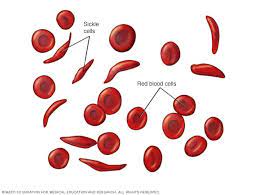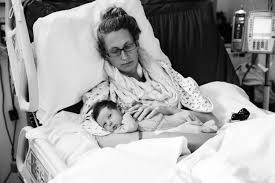
Group urges NASS to revisit, enact sickle cell bill
The Coalition of Sickle Cell NGOs, a sickle cell advocacy group, has urged members of the National Assembly, including the Federal House of Representatives and the Nigerian Senate, to give the enactment of the Sickle Cell Bill top priority in order to benefit both Nigerians without the disease and those who have it.
In a news release issued after World Sickle Cell Day, they made the request.
At the 63rd session of its General Assembly in December 2008, the UN proclaimed sickle cell disease to be "one of the foremost genetic diseases in the world" and a public health concern.
Then, in keeping with a trend that has gained pace since 2009, it urged member states and organisations to promote awareness of sickle cell disease on June 19 of each year.
The proponents reminded that the Sickle Cell Bill was shelved in its transfer to the Federal House of Representatives after it was discussed in the Nigerian Senate in 2021.
The purpose of the legislation, as supported by Senator Sam Egwu, is to establish guidelines for the management, prevention, and control of sickle cell anaemia.
According to Ms. Toyin Adesola, the Chairperson of the Coalition of Sickle Cell NGOs in Nigeria and Founding Executive Director of the Sickle Cell Advocacy and Management Initiative, more people need to know about sickle cell in order to make informed decisions.
"The Coalition of Sickle Cell NGOs was founded with the intention of avoiding working in silos," the speaker stated. We think collaborating on the issue of sickle cell, we believe when we come together as a group, people will understand us better and I hope that the Red Umbrella Walk held in different parts of Lagos and Nigeria will create awareness in our population and create curiosity when they see different people doing the same thing across different parts of the country.
“Let people know that this is an issue that needs to be discussed not only now but every time. You cannot dream of a person living with sickle cell. You cannot dream of the fact that people will marry away because it is still a choice matter. I told someone that unless malaria is eradicated, you cannot eradicate sickle cell.”
Further commenting on the need to revisit the Sickle Cell Bill, Adesola said, “There was a bill on the floor of the Senate some years ago that we had to intervene as Coalition of Sickle Cell NGOs because it stepped on human rights of not only the parents and parents-to-be but even persons living with sickle cell themselves. The Senate corrected some things and then moved it to the House of Reps, it was at this point that we didn’t hear anything again.
"We continue to press the Ministry of Health, but they tell us that there are other ailments and that we are not the only ones they are caring for. However, you should approach things one at a time because nothing will get done if you have such an attitude. You may say, "We'll take cancer and do this and that, and we'll do sickle cell now to this extent." We are aware that resources are scarce, but try to tackle one problem at a time and finish it before moving on to the next. You can't keep depending on NGOs; a government needs to be established.
"I want to encourage the 360 members of the House of Representatives to consider what it would be like if this person was your child. And I know that some of you have children who live with sickle cell but you are not telling it. You have the money to support them but what about those who don’t have that kind of money? This is not about someone else, it is about you, it is about us; it is about Nigeria. It concerns the productive population of Nigeria, the productive human resources of Nigeria who are intelligent, productive, and can do well for the country.”
According to Mrs. Omowunmi Odumosu, the mother of a seven-year-old kid with sickle cell, sickle cell patients have strong bones and are deserving of care.
She implored the government to step in and stop the escalation of medication costs.
"Our government, we beg you," Odumosu stated. We would want to express our gratitude for all that you do. We expect more from you. Our daily medications are increasingly expensive. Obtaining it is an additional issue. Additionally, there can be issues if we run out of the medications. Although it is not what we would have chosen, God has given us these children, and He will ensure their success and survival.
In honour of World Sickle Cell Day, a medical professional named Emeka Nwune participated in the Red Umbrella Walk hosted by the charity. Nwune stated that genotype testing is crucial for everyone, but particularly for those who are getting married soon.
"The first stage in management is advocacy. Even if your parents told you your genotype, it's still important to test yourself in at least two or three locations to ensure you have the correct genotype. To prevent having a child with sickle cell, find out the genotype of the person you plan to settle down with before making a commitment. When it comes to advocacy, we can do more.
"I've found that Nigerians enjoy listening to celebrities, so it would be beneficial if they could speak up. It would be really beneficial if people like us who do not have sickle cell disease did not stigmatise and assist those who do," he remarked.
Nwune also pleaded with the government to pass laws and put them into effect so that people with sickle cell disease have fulfilling lives and access to quality medical treatment.
"We require the backing of the government. We must enact laws that guarantee soldiers access to quality medical treatment. In order to establish specialised Health Maintenance Organisation programmes, government policies will be required, the physician stated.





